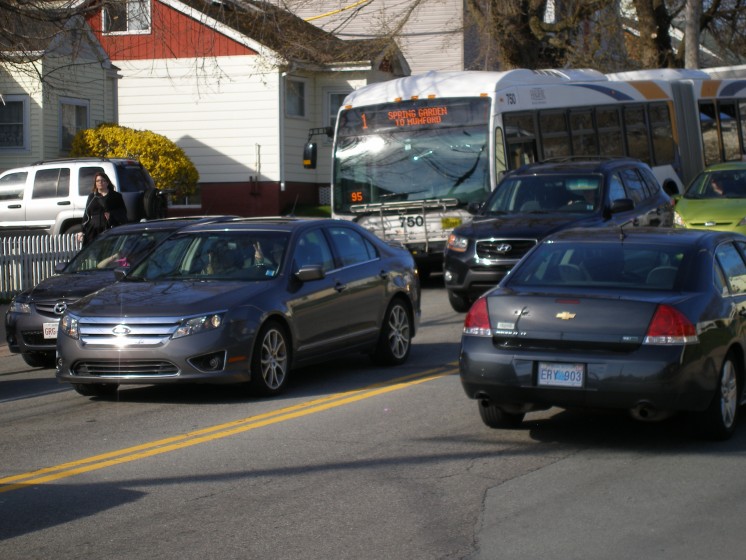I’ve spent the past few years working with It’s More than Buses, a group trying to bring fast frequent and reliable transit to more Halifax residents. We’ve gained some traction in our push for better transit, but have found very little appetite for big changes in how Haligonians travel. There is simply no urgency to address fundamental flaws in our transportation system. The health of our planet, our city and our residents depends not only on creating more opportunities to walk, bike or ride transit, but in completely rethinking how we build, operate, fund and pay for transportation.
Like most cities, Halifax is unwilling to tackle its biggest transportation problem: our travel uses too many resources and creates too much waste. More specifically, cars use too many resources and create too much waste.
A decade ago, Genuine Progress Atlantic found that transportation was the single largest cost for Nova Scotians. Transportation costs are higher than housing, food, healthcare and education costs. Many transportation costs are not borne by travellers. Some costs are covered by general taxes; others are external costs that are never really captured, like polluted air, poor health and injuries from traffic accidents. Some subsidies, like free parking, are so common we don’t even notice them.
We have grown accustomed to individuals and governments spending huge sums of money on transportation. We have grown used to long, frustrating commutes. We have grown numb to the crassness of enormous parking lots and gigantic roads that don’t just serve cars but intimidate and exclude walkers and cyclists. We simply shrug off the enormous environmental impacts of so much exhaust and so much asphalt. We have created a situation where government has to spend money on programs to encourage even a small number of children to walk or bike to school, despite these being the cheapest, healthiest and most social ways to travel. Then we’re surprised by the short term thinking that eliminates these programs because they cost too much. At the same time the cost of busing kids keeps rising, even as enrollment declines.
In short, we are completely unwilling to deal with the large and often negative impacts of how we travel.
Halifax has many groups working on sustainable transportation: It’s More than Buses, Halifax Cycling Coalition, Ecology Action Centre. These groups do lots of good work, but make minimal progress. This trend will continue unless we try to tackle the biggest issue: too much money, road space and hidden subsidies going to cars. There is no easy, safe or popular way to tackle this issue. Support for the status quo is enormous: most people don’t consider transportation issues deeply. Make no mistake – politicians and staff are not the people really holding up smarter transportation choices: it’s the public. Every day the residents of Halifax and Nova Scotia give their tacit approval to our transportation system by the choices they make. Major changes are simply impossible until we convince many more people to think differently about transportation.
The first challenge – clear and enormous – is to create some urgency about such a huge, entrenched problem. My first suggestion is for other transportation activists: it’s time to come together. Not as cycling advocates, not as transit advocates, not even as advocates for sustainable transportation. We must become advocates for great communities, with a compelling vision for how sustainable transportation is essential to making Halifax a great city and Nova Scotia a great province.
Our planet, our communities and our families can not afford to continue wasting so much on travel. Our first job is to make a strong case that the current paradigm is broken. We need to be the voice crying in the wilderness: there is a better way to travel.





